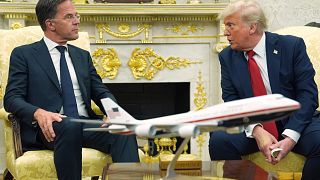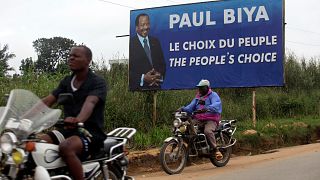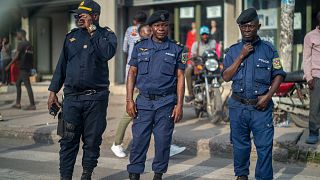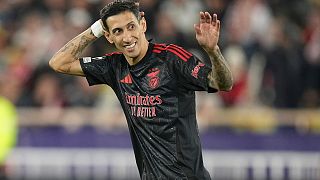Argentina
Diego Maradona, the Argentine soccer great who was among the best players ever and who led his country to the 1986 World Cup title, has died. He was 60.
The office of Argentina’s president will decree three days of national mourning because of Maradona’s death on Wednesday, and the Argentine soccer association expressed its sorrow on Twitter.
Maradona died two weeks after being released from a Buenos Aires hospital following brain surgery.
'Golden Boy'
Famed for the “Hand of God” goal in which he punched the ball into England’s net during the 1986 World Cup quarterfinals, Maradona captivated fans over a two-decade career with a bewitching style of play that was all his own.
Although his reputation was tarnished by his addictions and an ill-fated spell in charge of the national team, he remained idolized in soccer-mad Argentina as the “Pibe de Oro” or “Golden Boy.”
The No. 10 he wore on his jersey became synonymous with him, as it also had with Pele, the Brazilian great with whom Maradona was regularly paired as the best of all time.
Bold, fast and utterly unpredictable, Maradona was a master of attack, juggling the ball easily from one foot to the other as he raced upfield. Dodging and weaving with his low center of gravity, he shrugged off countless rivals and often scored with a devastating left foot, his most powerful weapon.
“Everything he was thinking in his head, he made it happen with his feet,” said Salvatore Bagni, who played with Maradona at Italian club Napoli.
A history of health problems
A ballooning waistline slowed Maradona’s explosive speed later in his career and by 1991 he was snared in his first doping scandal when he admitted to a cocaine habit that haunted him until he retired in 1997, at 37.
Hospitalized near death in 2000 and again in ’04 for heart problems blamed on cocaine, he later said he overcame the drug problem. Cocaine, he once said famously, had proven to be his “toughest rival.”
But more health problems followed, despite a 2005 gastric bypass that greatly trimmed his weight. Maradona was hospitalized in early 2007 for acute hepatitis that his doctor blamed on excessive drinking and eating.
He made an unlikely return to the national team in 2008 when he was appointed Argentina coach, but after a quarterfinal exit at the 2010 World Cup in South Africa, he was ousted — ultimately picking up another coaching job with the United Arab Emirates club Al Wasl.
Maradona was the fifth of eight children who grew up in a poor, gritty barrio on the Buenos Aires outskirts where he played a kind of dirt-patch soccer that launched many Argentines to international stardom.
In 2001, FIFA named Maradona one of the two greatest in the sport’s history, alongside Pele.
“Maradona inspires us,” said then-Argentina striker Carlos Tevez, explaining his country’s everyman fascination with Maradona at the 2006 World Cup in Germany. “He’s our idol, and an idol for the people.”













00:42
Morocco shines at women’s AFCON 2024 with thrilling win over DR Congo
00:40
Real Madrid's Xabi Alonso backs Rudiger after alleged racist abuse
Go to video
2026 World Cup: One year to go
01:15
Club World Cup to unite players from 87 countries - FIFA chief
Go to video
Al Ahly & Sundowns to clash in CAF Champions League semi-finals
Go to video
Gianni Infantino visited Philadelphia in his tour of the 11 host cities of the FIFA club world cup